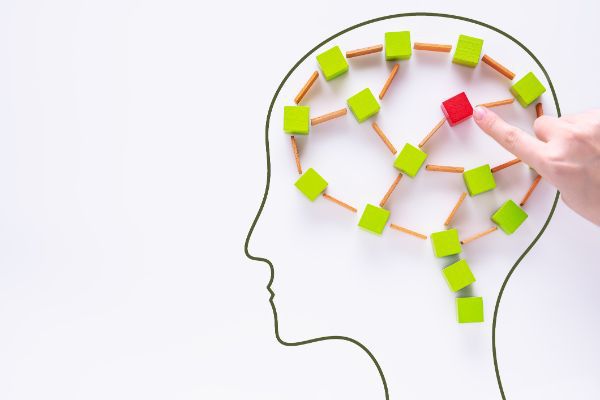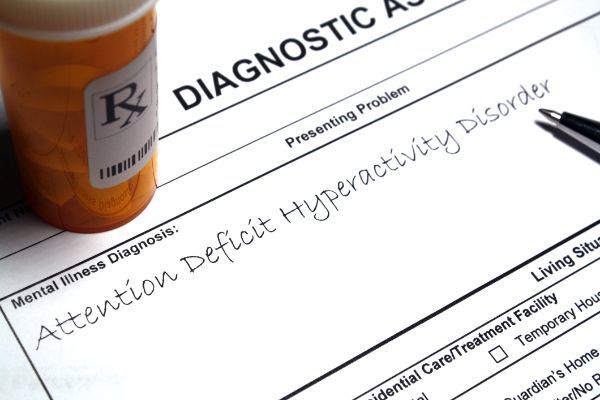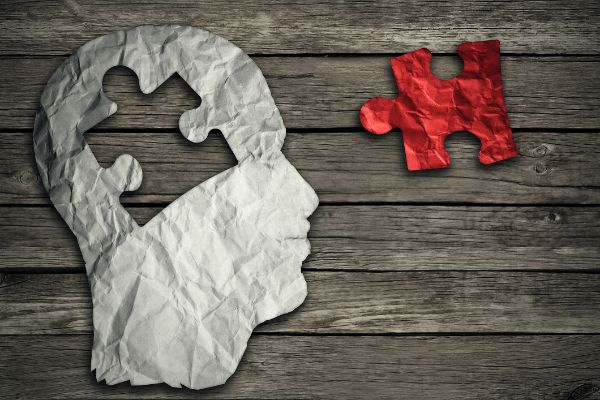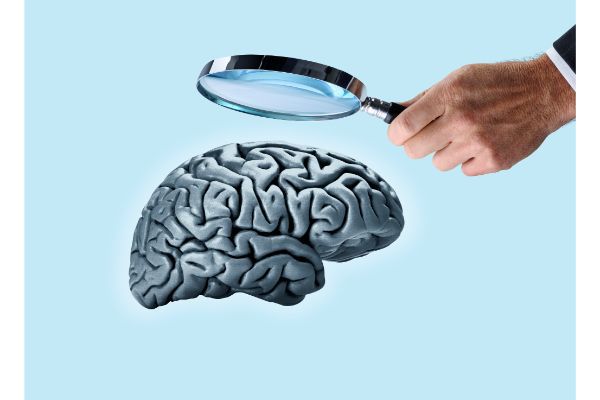|
According to the Centers for Disease Control and Prevention (CDC), traumatic brain injury accounts for millionsof emergency department visits every year. In 2014, 812,000 children visited an emergency room for a traumatic brain injury. There are many different causes of brain injury. However, a recent studyshowed that consumer products are likely to be the cause of traumatic brain injury (TBI) in children. The study found that most TBIs in children are caused by products such as beds, flooring, and sports equipment.
The Study The study focused on products and activities linked to TBI in children and teenagers. Researchers analyzed data related to over 4 million nonfatal TBIs reported in emergency rooms between 2010 and 2013. There were 1.1 million cases of TBI in teenagers aged 15-19 years old. There were 835,000 in children aged 10 to 14 years old, 683,000 in children aged 5 to 9, 1 million in children aged 1 to 4, and 380,000 in babies under a year. The study found that over 70% of TBIs in children were the result of a consumer product. It found that 42% of head injuries in infants were the result of home furnishings and fixtures. Within this group of home furnishings and fixtures, beds were found to be the most likely to cause a TBI, particularly among infants and children aged 1 to 4. This is not surprising given that young children spend much of their time at home. Car seats were found to be the fifth leading cause of brain injury in young children. While properly used car seats can save lives when they are used for purposes other than protecting a child in the car, they can be dangerous. Sports and recreation products contributed significantly to TBI in children aged 5 to 9, accounting for 32% of all injuries. These products were also significant contributors to TBIs in children aged 10-14 and teens aged 15-19. Among the sports and recreation products, bicycles, footballs, and basketballs were the most likely to cause a TBI. The study had some limitations given that the severity of the injuries was not investigated. In addition, it focused solely on injuries that resulted in a trip to the emergency department and not on other possible TBIs. If you or a loved one has a mental disability and has been arrested or convicted of a crime, you need an experienced criminal defense attorney on your side. Elizabeth Kelley specializes in representing individuals with mental disabilities. To schedule a consultation call (509) 991-7058. Attention-deficit/hyperactivity disorder (ADHD) is a common diagnosis among children in the United States. It is characterized by a lack of ability to focus and concentrate. Many children diagnosed with the condition are prescribed medication to control the symptoms. The Centers for Disease Control and Prevention (CDC) estimates that 5.2%of American children take medication for ADHD. The drug Methylphenidate (MPH) is one of the most popular ADHD medications, and a new study warns parents that the drug may be affecting the brains of children who take it.
The Study MPH is usually sold under the brands Ritalin or Concerta. It has shown to be effective in treating ADHD, but its effects on children's brains were unknown. There hasn't been enough research performed to determine the effect it had on the brains of children. Researchers from the University of Amsterdam set out to determine the effect the drug had on the white matter of children's brains. White matter is the tissue in the brain that carries signals and is an important part of learning and overall brain function. Thestudylooked at 50 boys, and 49 adult men all diagnosed with ADHD. None of the participants had taken MPH prior to the study. This was a crucial part of determining the effects of the drug on a developing brain. Study participants were divided into two groups. One group took MPH for 16 weeks, and the other group took a placebo. Before and one week after the trial, the participants underwent MRI scans that assessed their white matter levels. The Results The results of the study showed that MPH had different effects on the white matter of children versus that of adults. In adult men who took the drug and the children who did not take the drug, the white matter levels were unchanged. In children who took the drug, there was an increase in white matter readings. The long-term implications of these findings are unclear. However, it is clear that MPH affects the development of brain structure. Researchers caution parents and doctors to make informed decisions when deciding to prescribe ADHD medication. If you or a loved one has a mental disability and has been arrested or convicted of a crime, you need an experienced criminal defense attorney on your side. Elizabeth Kelley specializes in representing individuals with mental disabilities. To schedule a consultation call (509) 991-7058. The American Psychiatric Association (APA) is currently considering altering the entry for intellectual disability in the Diagnostic and Statistical Manual of Mental Disorders-5 (DSM-5). The DSM-5 is an essential tool for psychiatrists, researchers, insurers, and others who rely on it to determine whether someone is worthy of a diagnosis.
Proposed Change At issue in the change is the connection between two of the three criteria diagnosing intellectual disability. The three criteria for diagnosis are: 1) deficits in intellect; 2) deficits in adaptive functioning or daily life skills; and 3) onset in childhood. One sentence included in the DSM-5 seems to suggest that adaptive functioning deficits are required to be caused by deficits in intellect. It reads, "the deficits in adaptive functioning must be directly related to the intellectual impairments." In 2018, the American Association on Intellectual and Developmental Disabilities (AIDD) requested that the sentence be struck from the DSM-5. The APA has instead proposed that the language be replaced with language that states “deficits in adaptive functioning are a consequence of intellectual deficits.” A date has not been determined for when the language will be replaced. Concerns About the Change Experts agree that intellect and adaptive behavior are separate concepts. It is impossible to distinguish which adaptive functioning deficits are caused by IQ, educational opportunities, or mental health issues. This would make it difficult to diagnose intellectual disability because it cannot be established whether the adaptive functioning was a consequence of intellectual deficits. This could lead to an under-identification of individuals with intellectual disability and prevent people from receiving the services they need. The state of Texas, in the case of Moore v. Texas, used the language currently in the DSM-5 to find a man who would be executed as not having an intellectual disability. Texas noted that his adaptive functioning deficits were the result of a lack of education and not directly related to his intellectual functioning. The Supreme Court overturned the case and found that Moore did have an intellectual disability. If you or a loved one has a mental disability and has been arrested or convicted of a crime, you need an experienced criminal defense attorney on your side. Elizabeth Kelley specializes in representing individuals with mental disabilities. To schedule a consultation call (509) 991-7058. The California Legislature has set aside $50 million this year for schools who are willing to try new ways of detecting and preventing mental illness in the school. The state is calling on school districts to fill in the gaps in mental health care and treatment for children and teens. The Mental Health Student Services Act establishes a program where county behavioral health departments can team up with local schools to establish campus-based mental health services. The goal of the program is to recognize and treat mental illness before it becomes severe and disabling. The hope is to prevent suicides, homelessness, and suffering.
California lawmakers have been working towards moving mental health services from the clinic to the classroom for years. It is believed that services provided at school could be the first line of defense by recognizing mental health conditions early. Most mental health conditions present themselves when a person is in their early to late teens. This makes schools the perfect place to detect illness early. School Support The legislation has been encouraged by school leaders who recognize that a student’s mental health can affect their academic performance. Many schools across the state have already initiated mental health programs on their campuses. The hope is that many more schools will seek funding to establish their own programs. Schools should play a larger role in the overall wellness of their students, and integrated mental health programs can go a long way toward accomplishing that goal. Lawmakers believe there will be a positive response from schools and that many school districts will seek to participate. Schools in California have long provided some degree of mental health care in the form of special education, but there is a growing consensus that it is not enough. Some people may think that it's unusual for schools to be involved in mental health care. However, school is where children spend much of their time and are being closely observed. It is an ideal location for services to be provided. Programs already in place at some schools have been demonstrating success. The Mountain View-Los Altos High School District employs more than half a dozen therapists to help hundreds of students. Students are treated primarily for anxiety and depression. The school also uses initiatives such as anonymous referral boxes which give school employees tips on students who may need some help. If you or a loved one has a mental disability and has been arrested or convicted of a crime, you need an experienced criminal defense attorney on your side. Elizabeth Kelley specializes in representing individuals with mental disabilities. To schedule a consultation call (509) 991-7058. During the postpartum period, approximately 85% of women experience some type of mood disturbance. Even those women who have never suffered from a mental illness can experience the after-effects of the postpartum period. Many women suffer from what is known as "baby blues," which is a feeling of sadness and anxiety that occurs in the first couple of weeks after delivery. However, some women go on to experience more serious conditions.
Women are often afraid to seek help for their postpartum mental illness. Some women fear that they will be seen as weak and unable to care for their child. Other women fear that efforts to seek help could even lead to their children being taken away from them. However, it is important that we recognize the various types of postpartum mental illness and that greater awareness of these conditions can help women. Postpartum Depression Postpartum depression usually appears during the first few months but can appear at any time after delivery. Some women even experience depressive symptoms during pregnancy. It is clinically indistinguishable from other types of depression and includes symptoms such as:
Significant anxiety symptoms can also occur postpartum. Most women feel a general sense of anxiety and nervousness, but some women can experience anxiety attacks and hypochondria. In addition, some women report intrusive and obsessive thoughts about things such as harm coming to their baby. Postpartum Psychosis Not as common as anxiety and depression, postpartum psychosis is a rare and serious event. The onset of symptoms can begin as early as 48 to 72 hours after delivery. The symptoms closely resemble those of a bipolar manic state. Women with postpartum psychosis experience rapidly changing moods, confusion, and erratic or disorganized behavior. Delusional beliefs often centered on the infant, can occur. There is a significant risk of infanticide and suicide. Seeking Help It is crucial that women with postpartum mental illness seek the help they need. As a society, we must recognize these conditions and not place a stigma on needing mental health treatment. Women should be supported when they suffer from a postpartum mental illness so that they can work on getting through it. If you or a loved one has a mental disability and has been arrested or convicted of a crime, you need an experienced criminal defense attorney on your side. Elizabeth Kelley specializes in representing individuals with mental disabilities. To schedule a consultation call (509) 991-7058. Around 1 in 68 children in the United States is believed to have autism spectrum disorder (ASD) according to the Centers for Disease Control and Prevention (CDC). ASD is an umbrella term for conditions where individuals communicate and behave in ways that are different from people who are neurotypical. This sometimes manifests in issues with speech, nonverbal communication, social skills, and the repetition of behaviors. In some cases, individuals with ASD have emotional outbursts that can sometimes be destructive and dangerous.
Sudden outbursts of aggressive behavior are an unfortunate reality for individuals with ASD and their families. In order to minimize the harm these outbursts can bring, it may be helpful for caregivers to have advanced notice that an outburst is coming. Scientists have now developed a wearable device that they say can predict outbursts in individuals with ASD. Wearable Device The new device can be worn on the wrist. The technology detects signs of stress by monitoring the individual's heart rate, skin temperature, sweating, and arm movements. Scientists say the device can predict an outburst approximately 60 seconds before it happens with an accuracy rate of 84%. To test the device, scientists conducted a study involving 20 children with ASD who were prone to aggressive outbursts. The children wore the devices for a period of 87 hours. Researchers noted physiological changes and changes in behavior. Researchers then looked at this data to determine the types of changes that preceded an aggressive outburst. Advanced Warning Having advanced warning of an aggressive outburst can be a gamechanger for those caring for individuals with ASD. It can prevent caregivers from being caught off guard and give them an opportunity to potentially redirect or calm the aggression. They would also be able to remove that person to a safe environment or remove other individuals from the space for their safety. A great deal can be accomplished with even just a minute’s notice that an outburst is about to begin. If you or a loved one has a mental disability and has been arrested or convicted of a crime, you need an experienced criminal defense attorney on your side. Elizabeth Kelley specializes in representing individuals with mental disabilities. To schedule a consultation call (509) 991-7058. Starting in January of 2020, the California Bar will no longer be able to seek prospective lawyers’ mental health records. This comes after new legislation was enacted. Senate Bill 544removes the requirement that Bar applicants indicate their mental health status and sign over medical records.
California lawyers are regulated by the legislature. Under California's Business and Professions Code, lawyers, once they pass the bar exam, must be determined to be of "good moral character." However, the existence of a mental illness or disability does not mean that an individual cannot be of "good moral character." If they demonstrate that they are not of good character, they can be denied admission or disciplined by the California Supreme Court. The Bill The bill, which was signed by Governor Gavin Newsom on July 30th, received no opposition. The bill was sponsored by Disability Rights California, a nonprofit advocating for individuals with disabilities. According to the senator who introduced it, the purpose of the bill is to eliminate the stigma associated with mental illness. A mental health question on the bar application can have a chilling effect on law students who may choose not to seek treatment for their mental health conditions for fear it would affect their admission to the bar. Prospective lawyers with serious mental health issues would forgo treatment in order to avoid creating a paper trail of medical records that could be discovered by the California Bar. The hope is with the new bill in place, law students and prospective candidates will no longer live in fear of getting the treatment they need. California is among a number of states that have eliminated the mental health inquiry from bar applications. Virginia, Louisiana, and Washington have already enacted similar laws prohibiting Bars from seeking attorneys' mental health records. In June, the New York State Bar Association launched a task force to review the state's bar application and ensure that mental health treatment does not negatively affect admission. If you or a loved one has a mental disability and has been arrested or convicted of a crime, you need an experienced criminal defense attorney on your side. Elizabeth Kelley specializes in representing individuals with mental disabilities. To schedule a consultation call (509) 991-7058. A wealth of recent research has shown that exercise can boost mood. People who are physically active are more likely to report that they feel happy than sedentary people. A few studieshave shown that exercise can be almost as effective as antidepressants for improving mood. A new study has found that even a single session of exercise can be helpful for women with serious depression.
The Science Science has yet to fully explain how physical activity affects psychological health. Some scientists believe that exercise triggers the release of various proteins and other biochemical substances into our bloodstream. Once these substances make it to the brain, it is thought that they may jump-start neural processes that affect our emotions. However, which substances affect mental health has yet to be determined. A new study out of Iowa State University aims to answer that question. The focus of the study is on endocannabinoids, which are self-produced psychoactive substances that are similar to cannabis and marijuana. Endocannabinoids bind to receptors in our brains and help improve calm feelings and elevate mood. The Study As part of the study, researchers had women with major depression complete workouts on stationary bicycles. During most of the sessions, the women were told how intensely they should pedal. During one of the sessions, they were allowed to pedal at their own pace. Before each session, women gave blood and completed questionnaires about their emotional state. After each session, the women gave blood again and later repeated the questionnaire. The study found that any amount of exercise improved moods. It also found that improvement was more substantial when the women were given instruction on how intensely to pedal compared to when they pedaled at their own pace. Researchers used the data from this study to perform another studyregarding the level of endocannabinoids. The study found that, while women reported elevated moods regardless of how intensely they pedaled, there was only an increase in endocannabinoid levels when women pedaled moderately with instruction. This suggests that being coached or supervised during a workout can lead to different impacts on our minds. The reason for this correlation requires further research. All researchers agree, however, that it is clear that exercise at any intensity improves the mood. If you or a loved one has a mental disability and has been arrested or convicted of a crime, you need an experienced criminal defense attorney on your side. Elizabeth Kelley specializes in representing individuals with mental disabilities. To schedule a consultation call (509) 991-7058. |
Details
Archives
March 2024
Categories |








 RSS Feed
RSS Feed